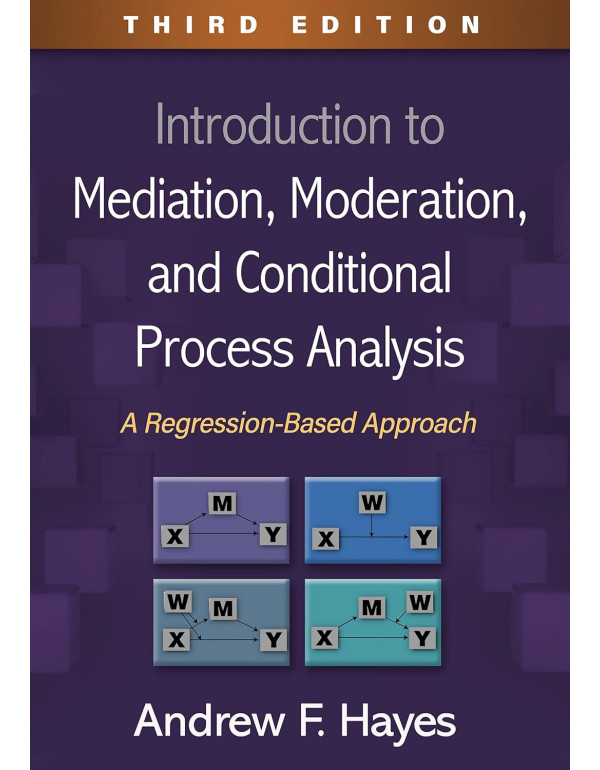Introduction To Mediation, Moderation, And Conditional Process Analysis *HARDCOVER* 3rd Ed. By Andrew Hayes - {9781462549030}
GBP35.99
Demystifying
Complex Statistical Techniques with Real-World Applications
Acclaimed for its user-friendliness, this revised edition delves deeper
into mediation, moderation, and conditional process analysis (CPROCESS).
Author Andrew F. Hayes utilizes plain language and diverse exa..
| Demystifying
Complex Statistical Techniques with Real-World Applications Acclaimed for its user-friendliness, this revised edition delves deeper into mediation, moderation, and conditional process analysis (CPROCESS). Author Andrew F. Hayes utilizes plain language and diverse examples to guide researchers and students through applying these techniques in various social science studies. Key Highlights: Updated for New Software: Covers the latest advancements in PROCESS for SPSS, SAS, and now R, facilitating your analysis workflow. Focus on Meaningful Interpretation: Goes beyond calculations to emphasize understanding the causal relationships your data reveals. Step-by-Step Guidance: Clear instructions and real-world research examples showcase each step of the analysis process. Expanded Content: New sections address effect scaling, comparing indirect effects, probing moderation of mediation, and testing interaction assumptions. Comprehensive Coverage: Explores mediation, moderation, CPROCESS, reporting results, and power analysis for informed research decisions. Accessible and Engaging: Minimal math ensures the content is understandable, even for those with less quantitative experience. Valuable Resources: Access data and the free PROCESS macro for SPSS, SAS, and R through the accompanying website. Key Topics Covered: Mediation analysis: Uncovering whether a variable acts as a mediator between two others. Moderation analysis: Examining how a third variable influences the relationship between two others. Conditional process analysis: Combining mediation and moderation to explore complex interactions. Reporting results: Effectively communicating your findings for clear dissemination. Power analysis: Determining the appropriate sample size for reliable results. Overall: This comprehensive guide empowers researchers and students to confidently apply mediation, moderation, and CPROCESS analysis in their studies. Its emphasis on interpretation, practical examples, and accessibility make it a valuable resource for understanding causal relationships and drawing meaningful conclusions from research data. |

